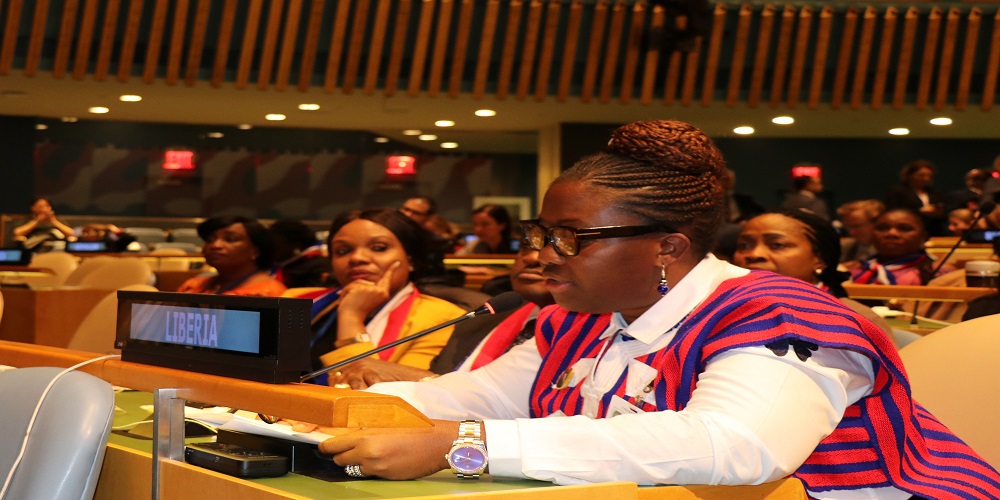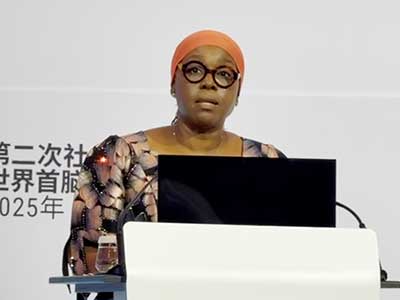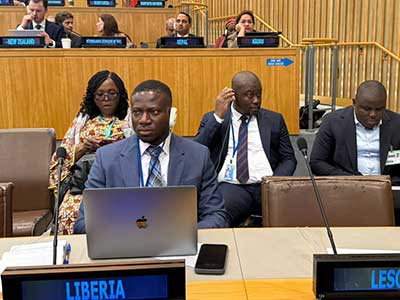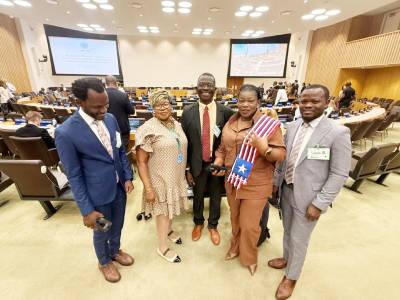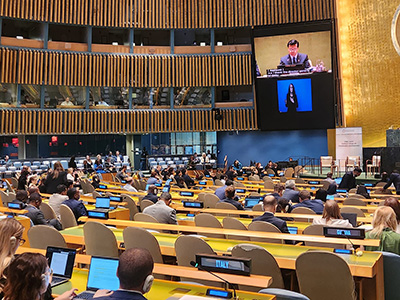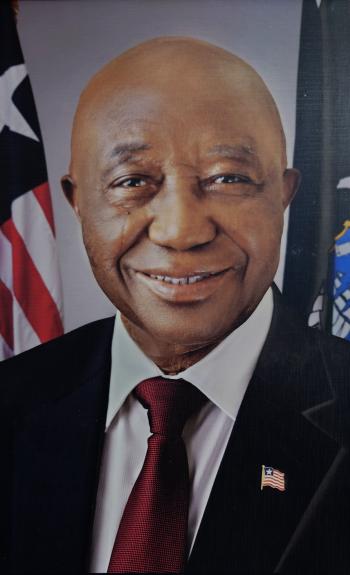The Government of Liberia, with support from the United States Agency for International Development (USAID) and the World Bank, has allocated 16.5 Million United States Dollars for the strengthening of Liberia's National Social Safety Net System.
The System will include the establishment of a Social Registry Database, Cash Transfer to extremely poor and food insecure households, and Project Management and Capacity Building.
The Cash Transfer component, according to the Minister of Gender, Children and Social Protection Honorable Williametta Piso Saydee-Tarr, will benefit Ten Thousand (10,000) poorest households in Liberia, consisting mainly of women.
Presenting the Country report of Liberia at the General Discussion of the Sixty-third (63rd) Session of the Commission on the Status of Women (CSW63) on Tuesday, March 12, Minister Tarr informed the global body that 'cash transfer' programs have been successful in Liberia over the years, significantly empowering women to make independent decisions; while providing social safety nets for their children.
Said Minister Tarr: "Cash transfer is a pathway to women’s economic empowerment and gender equality. Cash transfer in Liberia has empowered women headed-households to make independent decisions and improved the status of women within their households and communities and increased their autonomy."
According to a dispatch from the Permanent Mission of Liberia to the United Nations, Minister Tarr further explained that Social protection in Liberia dates back to 2008, and has benefitted thousands of vulnerable and poorest households since it was piloted.
Minister Tarr assured the global body that the Liberian Government through its Pro-poor Agenda for Prosperity and Development is committed to upholding the virtues that will further improve the lives and advance the economic empowerment of women and girls in Liberia.
The Minister of Gender, Children and Social Protection emphasized that the Government's commitment is evidenced by the recent pronouncement by His Excellency President George Manneh Weah, declaring tuition-free education for all undergraduates at all Public Universities and Colleges, and the payment of West African Senior School Certificate Examination (WASSCE) fees for all 9th and 12th graders; actions she said have "increased the number of girls attending schools and significantly helped poor women and girls break the demand-side barriers to schooling and healthcare".
On access to public services, Minister Tarr spoke of the implementation of access to information programs, infrastructural development, training, and provision of equipment to women farmers. "The Government has invested in the following: construction and rehabilitation of roads with safety signs, benefiting women farmers to access markets; installation of solar energy in rural health facilities--reducing the prevalence of maternal mortality; training of Eleven (11) Women as Solar Energy Technicians and provided agriculture processing machines and equipment to women farmers, and trained them on the usage and maintenance."
The Minister of Gender, Children and Social Protection then used the occasion to highlight that despite the progress, challenges still abound; including ensuring that public services are accessible to the disabled and providing adequate support for rape victims. " We need more trained personnel in sign language to cater to the needs of the hearing, speech and visually impaired. We need more Women and Children Protection officers and funding for journalists to enhance awareness on SGBV". Minister Tarr emphasized.
The Sixty-third (63rd) Session of the Commission on the Status of Women (CSW63) is convening at the United Nations Headquarters in New York from March 11-22, 2019.
As part of its participation in CSW63, the Government of Liberia will on Thursday, March 14, host a Side-Event titled: Changing Women's lives through social cash transfer". The Side-Event will showcase a documentary featuring beneficiaries of Social Cash Transfer Programs in Liberia, and highlight the country's efforts to provide social protection for the most vulnerable; especially women.

